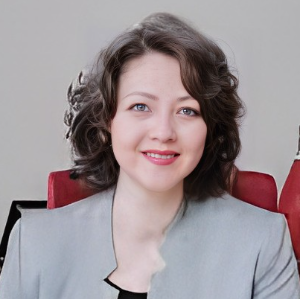Title : Regenerative effect of mesenchymal stem cell in covid-19
Abstract:
The novel COVID-19 disease caused by severe acute respiratory syndrome Coronavirus-2 (SARS-CoV-2), which emerged in China in late 2019, spread rapidly across the world in a short time. The disease has been declared as a pandemic by the World Health Organization (WHO). The patient's immune system plays an important role in the course of the disease. The virus causes pneumonia in infected patients and overabundant levels of cytokines are produced by immune modulator cells due to excessive triggering of the immune system in individuals with severe disease. This condition is defined as cytokine storm, causing acute respiratory distress syndrome (ARDS) and consequently multiple organ failure. Against the COVID-19 disease, the treatment protocols and drug development studies of scientists around the world continue intensively. However, there is currently no proven form of direct treatment against SARS-CoV-2. Today, the application treatment protocols include anti-viral drugs and the administration of Human Immunodeficiency Virus (HIV) protease inhibitors and ACE-2 receptor inhibitors, passive antibody transfer applications, in addition to all mesenchymal stem cell (MSC) treatments. In recent years, stem cell-based cellular therapy methods in regenerative medicine offer advantages in many areas and become increasingly important. MSCs are fibroblast-like precursor cells found in most adult and neonatal tissues. They are described by their capacity to differentiate into cells of mesodermal origin such as adipocytes, chondroblasts, and osteoblasts. However, MSCs have the potential to regulate adaptive and innate immune responses with their immunoregulatory properties. They regulate immune reactions by triggering the function and proliferation of immune system cells. MSCs can exhibit both anti-inflammatory and pro-inflammatory effects by interacting with components of the innate immune system. In this sense, MSCs stand out with their strong immunomodulatory effects. MSCs are cells with strong immunomodulatory properties thanks to their anti-inflammatory cytokines, chemokines secretion, anti-microbial, anti-apoptotic, pro-angiogenic potential and regeneration abilities. These cells perform their immunomodulatory effects either directly by interacting with the host immune cells or paracrine through the various cytokines they secrete. The paracrine effects of MSCs are mediated through growth factors such as vascular growth factor (VEGF), fibroblast growth factor (FGF), hepatocyte growth factor (HGF), MCP-1 and regulatory cytokines such as IFN-α, indolamine 2,3-dioxygenase, TGFα, IL-10 and PGE2. Paracrine secretion products of MSCs are therapeutically important. Their effectiveness in the regulation of immune reactions suggests that MSCs may be effective in suppressing the cytokine storm that occurs in patients infected with SARS-CoV-2. It is assumed that they contribute to tissue repair in the lungs by their ability to migrate towards damaged lung tissue, secretion of paracrine factors that repair and protect alveolar cells, and their effects on regulating the lung microenvironment. Thus, in the treatment of COVID-19, it is assumed that they may be a potential alternative strategy to treat ARDS.



